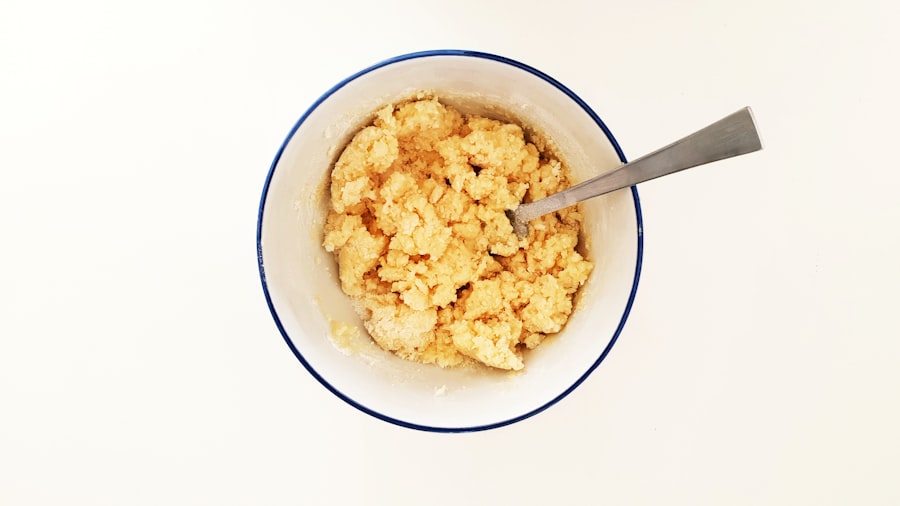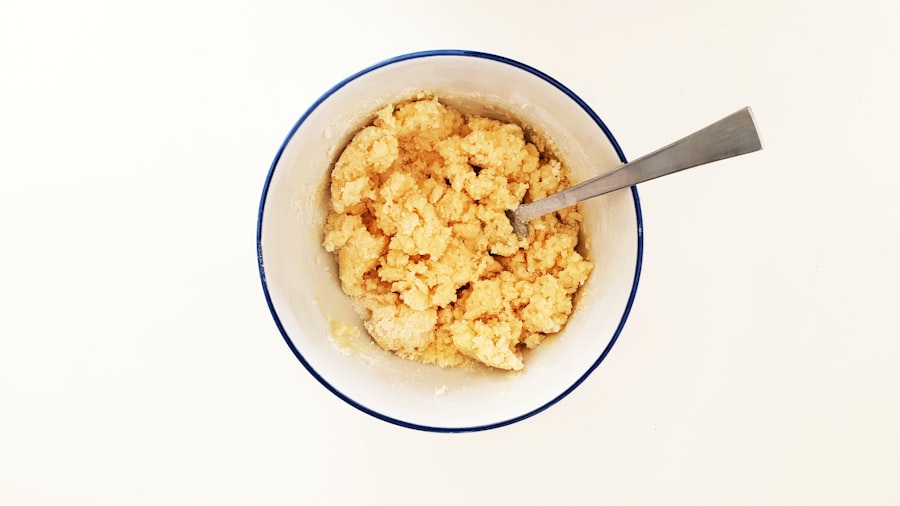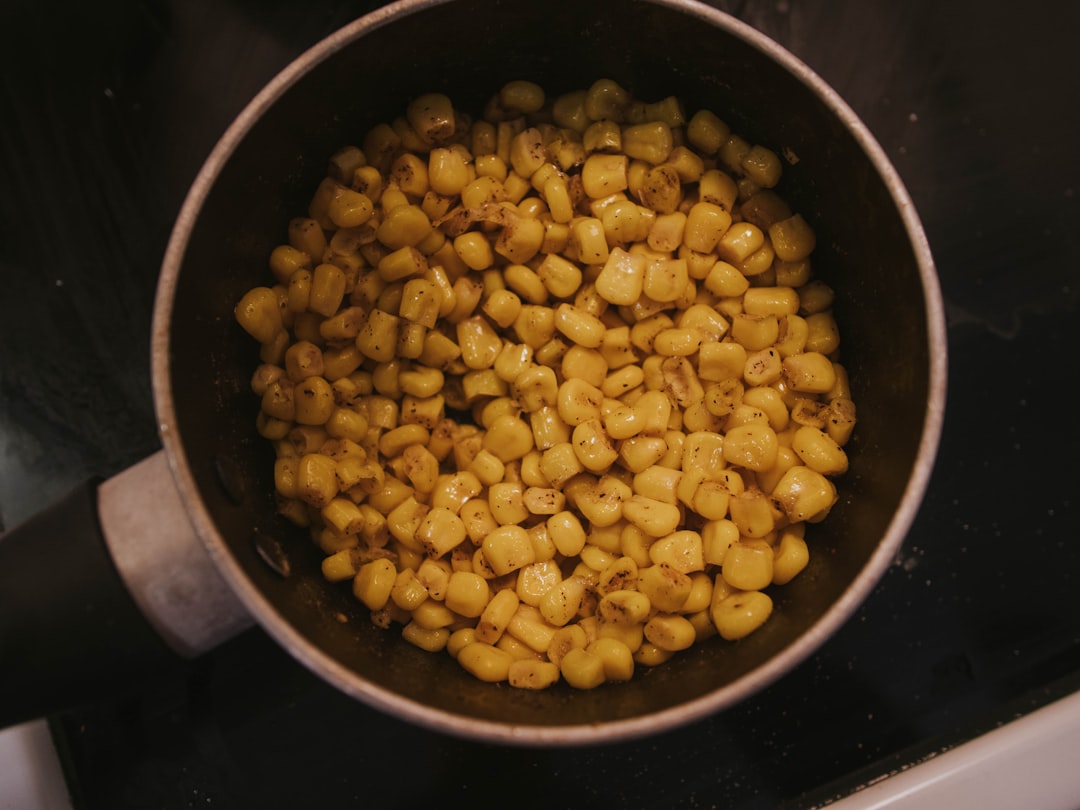Potassium bromate is a chemical compound that has been widely used in the baking industry as a flour improver. It serves as a dough conditioner, enhancing the elasticity and strength of the dough, which ultimately leads to a better rise and texture in baked goods. When added to bread dough, potassium bromate helps to create a more uniform crumb structure and improves the overall quality of the final product.
Bakers appreciate its ability to produce bread that is light, airy, and has a desirable crust, making it a popular choice in commercial baking. The use of potassium bromate in bread can be traced back to the early 20th century when it was first recognized for its beneficial properties. It acts as an oxidizing agent, which means it helps to strengthen the gluten proteins in flour.
As a result, bread made with potassium bromate often has a superior texture and volume compared to those made without it. Despite its advantages, the use of potassium bromate has become increasingly controversial due to health concerns associated with its consumption.
Key Takeaways
- Potassium bromate is a food additive used in bread to improve dough strength and rise.
- Consumption of potassium bromate has been linked to health risks, including cancer and kidney damage.
- The FDA has not banned the use of potassium bromate in bread, but encourages bakers to voluntarily stop using it.
- Studies have shown a clear link between potassium bromate and an increased risk of cancer.
- Several countries, including the UK and Canada, have banned the use of potassium bromate in bread production.
- Consumers can identify potassium bromate in bread labels by looking for E number E924 and the words “potassium bromate” or “bromated flour.”
- Alternatives to potassium bromate in bread production include ascorbic acid, azodicarbonamide, and enzymes.
- The American bread industry lacks regulation and oversight, allowing the continued use of potassium bromate in bread.
- Consumer awareness and education on potassium bromate is crucial in making informed choices about bread consumption.
- Efforts to ban potassium bromate in American bread include petitions and advocacy for stricter regulations.
- To avoid potassium bromate in bread, consumers can choose organic or homemade bread, or look for labels that specifically state “bromate-free.”
The Health Risks Associated with Potassium Bromate Consumption
The health risks linked to potassium bromate consumption have raised significant concerns among health professionals and consumers alike. Research has indicated that potassium bromate may pose potential dangers when ingested, particularly in large quantities. One of the primary concerns is its classification as a possible human carcinogen by various health organizations.
This classification stems from studies that have shown that high doses of potassium bromate can lead to tumors in laboratory animals, prompting fears about its safety for human consumption. In addition to its potential carcinogenic effects, potassium bromate has been associated with other health issues. Some studies suggest that it may cause kidney damage and disrupt normal cellular functions.
Furthermore, individuals with certain sensitivities may experience adverse reactions, such as gastrointestinal distress or allergic responses. As awareness of these risks grows, many consumers are becoming increasingly cautious about the ingredients in their food, leading to calls for greater transparency and regulation in the food industry.
The FDA’s Stance on Potassium Bromate in Bread

The Food and Drug Administration (FDA) has taken a somewhat ambivalent stance on the use of potassium bromate in bread. While it is permitted for use in the United States, the FDA has established guidelines regarding its safe levels of consumption. The agency allows potassium bromate to be used as a food additive, provided that it is used within specified limits.
However, the FDA also acknowledges the potential health risks associated with its consumption and recommends that bakers minimize its use. Despite its approval, the FDA has not actively promoted potassium bromate as a safe ingredient. Instead, it has encouraged manufacturers to explore alternative methods for improving bread quality without relying on potentially harmful additives.
The agency’s position reflects a growing awareness of consumer concerns regarding food safety and the need for more stringent regulations surrounding food additives. As public sentiment shifts towards healthier eating habits, the FDA’s stance may evolve further in response to ongoing research and advocacy efforts.
The Link Between Potassium Bromate and Cancer
| Study | Findings |
|---|---|
| International Agency for Research on Cancer (IARC) | Potassium bromate is classified as a possible human carcinogen |
| National Toxicology Program (NTP) | Potassium bromate is listed as reasonably anticipated to be a human carcinogen |
| Animal Studies | Exposure to potassium bromate has been linked to the development of tumors in multiple organs |
| Human Studies | Some studies have found an association between potassium bromate exposure and increased risk of cancer |
The link between potassium bromate and cancer has been a focal point of research and debate within the scientific community. Numerous studies have indicated that high levels of potassium bromate can lead to the development of tumors in laboratory animals, particularly in the kidneys. These findings have raised alarms about the potential risks associated with human consumption of products containing this chemical.
While the exact mechanism by which potassium bromate may contribute to cancer development remains unclear, its classification as a possible human carcinogen has prompted calls for caution. The implications of these findings are significant, especially considering the widespread use of potassium bromate in commercial bread production.
The connection between potassium bromate and cancer has fueled advocacy efforts aimed at banning its use in food products altogether, highlighting the need for further research and regulatory action to protect public health.
Countries That Have Banned the Use of Potassium Bromate in Bread
In response to growing health concerns, several countries have taken decisive action to ban the use of potassium bromate in bread production. Nations such as Canada, the European Union member states, and some parts of Asia have implemented strict regulations prohibiting this chemical from being used as a food additive. These bans reflect a commitment to prioritizing public health and safety over industrial convenience.
The decision to ban potassium bromate is often driven by mounting evidence linking it to potential health risks, including cancer. Countries that have enacted such bans recognize the importance of safeguarding their populations from harmful substances in food products. As global awareness of food safety issues continues to rise, there is increasing pressure on other nations, including the United States, to reconsider their stance on potassium bromate and take similar measures to protect consumers.
How to Identify Potassium Bromate in Bread Labels

For consumers concerned about the presence of potassium bromate in their bread products, understanding how to identify it on labels is crucial. In many cases, manufacturers are required to list all ingredients used in their products, including additives like potassium bromate. Consumers should look for this chemical specifically mentioned in the ingredient list; however, it may also be listed under alternative names such as “bromated flour” or “potassium bromate.” In addition to scrutinizing ingredient labels, consumers can also seek out brands that explicitly advertise their products as “bromate-free.” Many bakeries and manufacturers are responding to consumer demand for safer alternatives by eliminating potassium bromate from their recipes altogether.
By being vigilant about reading labels and choosing products from reputable sources, consumers can make informed decisions about what they are putting into their bodies.
Alternatives to Potassium Bromate in Bread Production
As concerns about potassium bromate continue to grow, many bakers are exploring alternative methods for improving bread quality without relying on this controversial additive. One popular alternative is the use of natural enzymes, which can enhance dough strength and improve fermentation without introducing harmful chemicals. Enzymes such as amylase and protease can help break down starches and proteins in flour, resulting in improved texture and flavor.
Another option gaining traction is the use of organic acids like ascorbic acid (vitamin C) or vinegar. These natural ingredients can act as dough conditioners while also providing additional health benefits. By utilizing these alternatives, bakers can create high-quality bread products that meet consumer demands for safety and nutrition without compromising on taste or texture.
The Lack of Regulation and Oversight in the American Bread Industry
The American bread industry has faced criticism for its lack of regulation and oversight regarding food additives like potassium bromate. While organizations like the FDA provide some level of guidance, many argue that existing regulations are insufficient to protect consumers from potentially harmful substances. The reliance on self-regulation by manufacturers has led to inconsistencies in ingredient transparency and safety practices across the industry.
This lack of oversight raises important questions about accountability within the food supply chain. Consumers deserve assurance that the products they purchase are safe and free from harmful additives. Advocates for stricter regulations argue that comprehensive policies are needed to ensure that all food products meet rigorous safety standards, ultimately fostering greater trust between consumers and manufacturers.
The Importance of Consumer Awareness and Education on Potassium Bromate
Consumer awareness and education play a vital role in addressing concerns surrounding potassium bromate and other food additives. As more individuals become informed about the potential risks associated with certain ingredients, they are better equipped to make choices that align with their health priorities. Educational initiatives aimed at raising awareness about potassium bromate can empower consumers to advocate for safer food options and demand greater transparency from manufacturers.
Moreover, increased consumer awareness can drive market demand for healthier alternatives, prompting manufacturers to reconsider their ingredient choices. As consumers prioritize nutrition and safety in their purchasing decisions, businesses may be incentivized to adopt cleaner production practices that eliminate harmful additives like potassium bromate altogether.
Efforts to Ban Potassium Bromate in American Bread
In recent years, there have been concerted efforts by advocacy groups and concerned citizens to ban potassium bromate from American bread production. These initiatives often involve raising public awareness about the potential health risks associated with this chemical while lobbying lawmakers for stricter regulations on food additives. Grassroots campaigns have gained traction as more people become aware of the implications of consuming products containing potassium bromate.
Some states have already taken steps toward banning or restricting its use within their jurisdictions. These efforts reflect a growing movement towards prioritizing public health over industrial convenience in food production practices. As advocacy continues to gain momentum, there is hope that broader changes will occur at both state and federal levels regarding the regulation of harmful additives like potassium bromate.
What Consumers Can Do to Avoid Potassium Bromate in Bread
Consumers who wish to avoid potassium bromate in their bread products can take several proactive steps to ensure they are making informed choices. First and foremost, they should familiarize themselves with ingredient labels and look specifically for mentions of potassium bromate or related terms like “bromated flour.” By being vigilant about reading labels before purchasing bread products, consumers can make choices that align with their health priorities. Additionally, seeking out local bakeries or brands that explicitly advertise themselves as “bromate-free” can provide peace of mind for those concerned about this additive’s potential risks.
Many artisanal bakers prioritize using natural ingredients without harmful additives, making them an excellent option for health-conscious consumers. By supporting these businesses and advocating for transparency within the industry, consumers can contribute to a broader movement towards safer food practices while enjoying high-quality bread products free from potassium bromate.
Potassium bromate is a chemical additive often used in the bread-making process to improve dough strength and elasticity, resulting in a higher rise and a more appealing texture. However, its use has been controversial due to potential health risks, including its classification as a possible human carcinogen. Despite being banned in several countries, it is still permitted in the United States under certain conditions. For more insights into the use of potassium bromate in American bread and its implications, you can read a related article on this topic by visiting Hey Did You Know This.
WATCH THIS! 👀Why These 30 American Products Are Immediately Illegal In Europe
FAQs
What is potassium bromate?
Potassium bromate is a chemical compound that is commonly used as a flour improver in bread making. It helps strengthen the dough and allows it to rise higher, resulting in a lighter and fluffier texture in the finished bread.
Is potassium bromate safe to consume?
Potassium bromate has been classified as a possible human carcinogen by the International Agency for Research on Cancer (IARC). It has been banned for use in food products in many countries due to its potential health risks.
Is potassium bromate allowed in American bread?
The use of potassium bromate as a flour improver in bread is legal in the United States, although its use is regulated by the Food and Drug Administration (FDA). However, many bakers and bread manufacturers have voluntarily stopped using potassium bromate in their products due to health concerns.
What are the potential health risks of potassium bromate?
Exposure to potassium bromate has been linked to an increased risk of cancer, particularly kidney and thyroid cancer. It can also cause damage to the kidneys and may have adverse effects on the nervous system.
How can consumers avoid potassium bromate in bread?
To avoid consuming potassium bromate in bread, consumers can look for products that are labeled as “bromate-free” or “potassium bromate-free.” Additionally, choosing breads that are made with alternative flour improvers, such as ascorbic acid or enzymes, can help reduce the risk of potassium bromate exposure.
